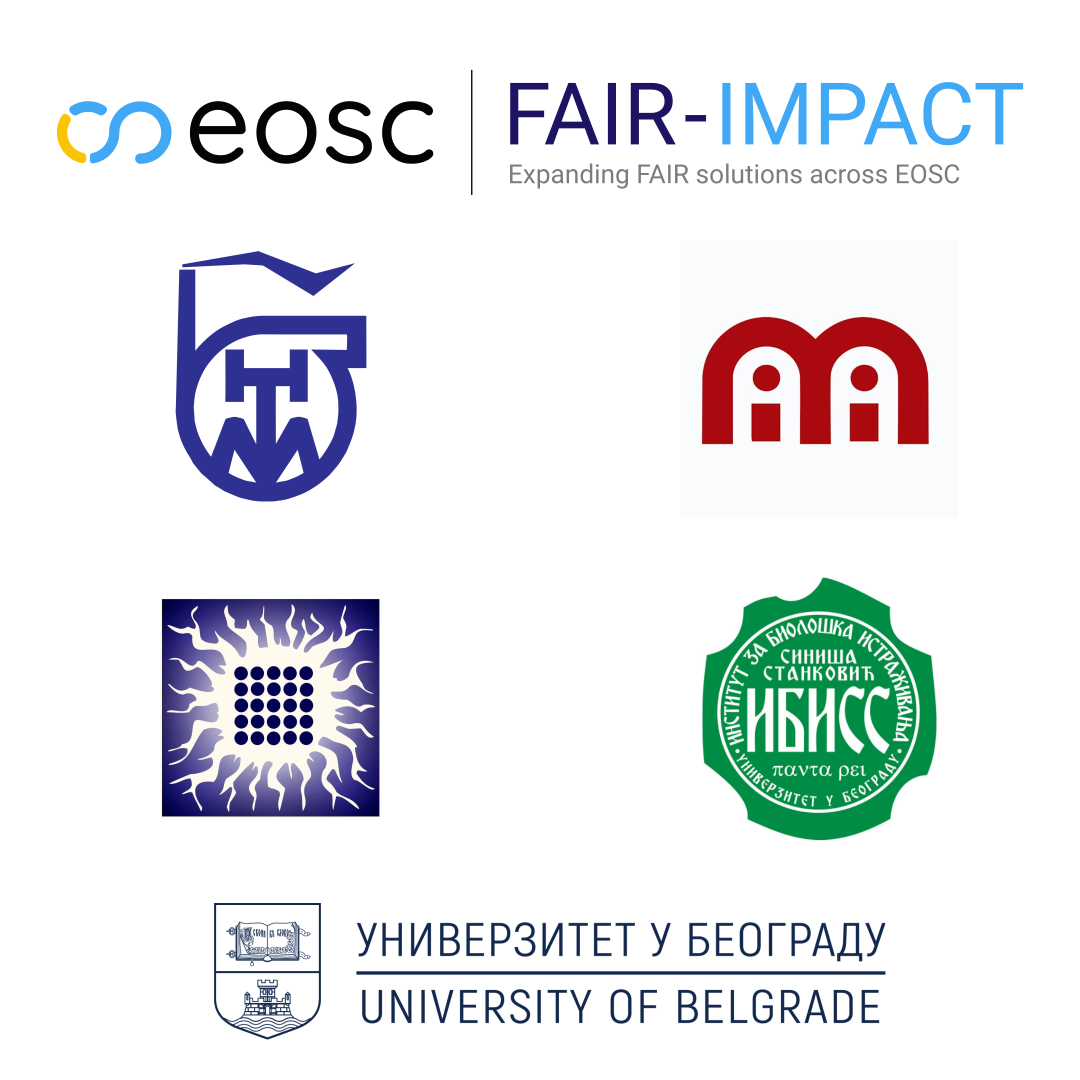Within the second Call for Route 2 Support on the project "Expanding FAIR Solutions across EOSC – FAIR-IMPACT", a group of four scientific research organizations of the University of Belgrade received support for action #3 Recommendations for trustworthy and FAIR-enabling data repositories. The group consists of: Institute of Chemistry, Technology and Metallurgy, Dr. Matija Zlatar, Principal Research Fellow and Head of this Group, Institute for Medical Research, Milica Ninković, Librarian and Manager of the RIMI Repository, Institute of Nuclear Sciences - Vinča, Obrad Vučkovac, Librarian and Manager of the VINAR Repository and Institute for Biological Research “Siniša Stanković”, Zorica Janković, Librarian and Manager of the RADaR Repository.

As part of the implementation of the European Open Science Cloud (EOSC), the FAIR-IMPACT project, funded by the European Union, aims to improve cooperation and support in implementing the FAIR principles of Open Science. The target groups of the FAIR-IMPACT project are scientific communities at European, national, and institutional levels, and the project focuses on persistent identifiers (PIDs), metadata, ontologies, metrics, certifications, and interoperability. This project will identify practices, policies, tools, and technical specifications to help researchers, institutional repository managers, scientific research organizations, policymakers, and citizens who volunteer to participate in science to manage scientific data following the FAIR principles.
The collaboration between these four institutes emphasizes the commitment to Open Science and the principles of transparency, interoperability, and trustworthiness in scientific work. The team will have the opportunity to test and revise the guidelines for improving the transparency of research data repositories and trusts developed by FAIR-IMPACT and receive guidance on creating metadata at the organizational level and the data itself to facilitate its retrieval and support interoperability.
IBISS uses analytical cookies to analyze the use of the site in order to improve the user experience, by clicking "Accept" you consent to the use of cookies.